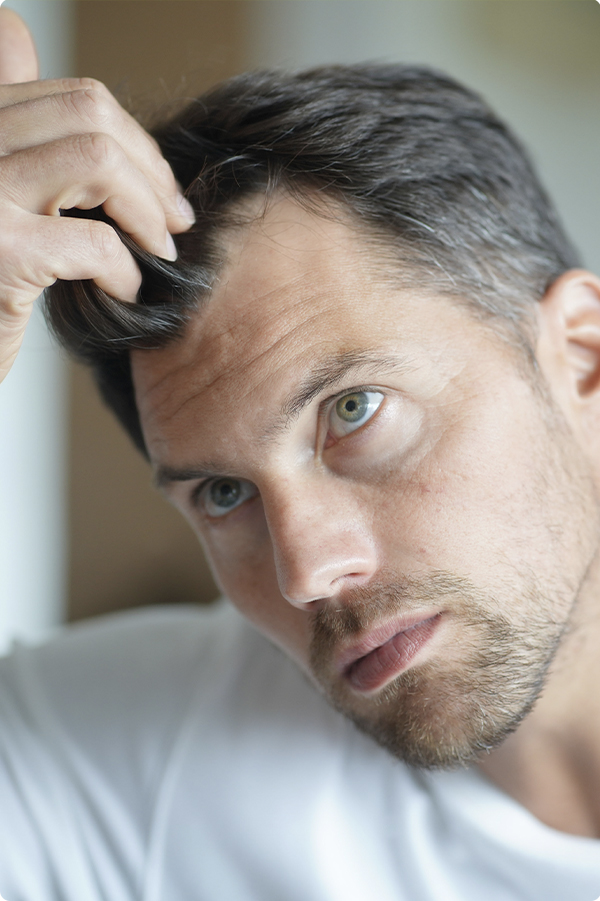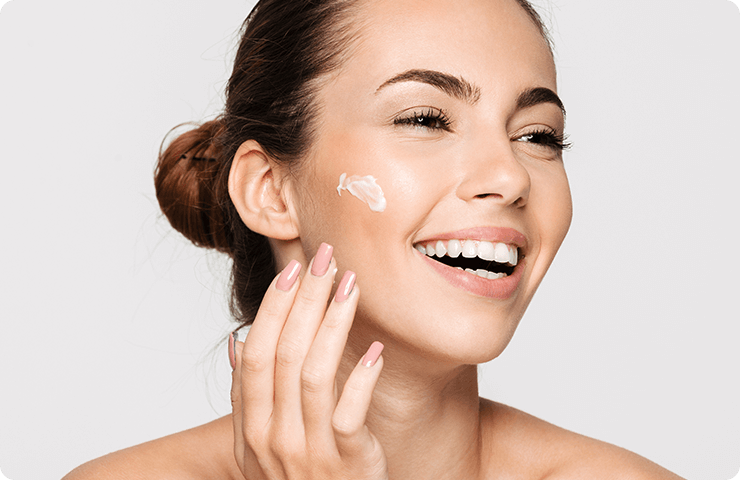
Hair Loss
Written by Melanie Dixon

Hair Loss
More permanent hair loss can be trickier to manage depending on what’s causing it. It may be a sign of a more serious health condition and can be emotionally distressing, so seek help early to encourage regrowth and prevent further loss.
Common Signs
Without even noticing, it’s completely normal to lose between 50-100 strands of hair every day, especially when brushing or washing your hair. If you’re worried that you’re losing more hair than this, it’s advisable to see your GP. Common signs that your hair loss isn’t normal are:
- Bald patches
- Gradual thinning on top of the head
- Hair that’s easy to pull out or comes out in clumps
- Loss of body hair
- Itching or burning of the scalp
Common Causes
- Age
- Family history
- Pregnancy
- Stress or trauma
- Sudden weight loss
- Nutrient deficiencies
- Health conditions, after an illness or cancer
- Medications, chemotherapy or radiation treatment
- Tight hairstyles and chemical treatments
Common Signs
Without even noticing, it’s completely normal to lose between 50-100 strands of hair every day, especially when brushing or washing your hair. If you’re worried that you’re losing more hair than this, it’s advisable to see your GP. Common signs that your hair loss isn’t normal are:
- Gradual thinning on top of the head
- Hair that’s easy to pull out or comes out in clumps
- Bald patches
- Loss of body hair
- Itching or burning of the scalp
Common Causes
- Tight hairstyles and chemical treatments
- Age
- Family history
- Pregnancy
- Stress or trauma
- Sudden weight loss
- Nutrient deficiencies
- Health conditions, after an illness or cancer
- Medications, chemotherapy or radiation treatment
Top Tips for Hair Loss



Don’t crash diet. Sudden weight loss makes the body enter starvation mode and slows hair growth.





